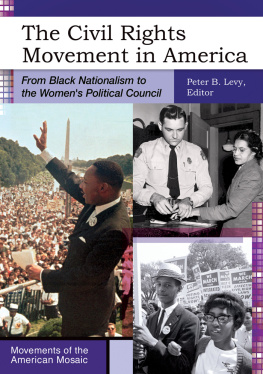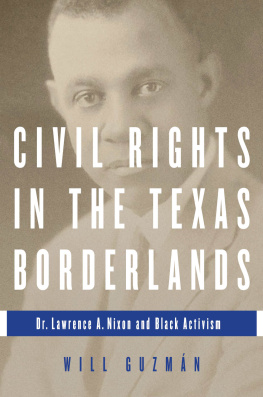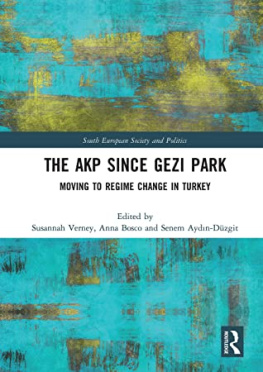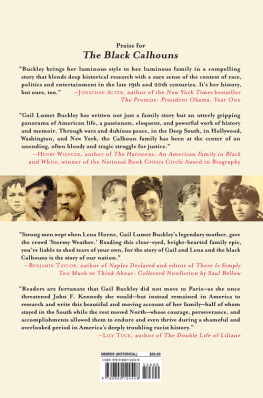Issues in Historiography
General editor
R. C. RICHARDSON
University of Winchester
Already published
The Debate on the Norman Conquest
Marjorie Chibnall
The Debate on the French Revolution
Peter Davies
Debates on the Holocaust
Tom Lawson
The Debate on the American Revolution
Gwenda Morgan
The Debate on the English Reformation
Rosemary ODay
The Debate on the Decline of Spain
Helen Rawlings
The Debate on the English Revolution
R. C. Richardson
The Debate on the American Civil War Era
H. A. Tulloch
The Debate on the Crusades
Christopher Tyerman
The Debate on the Rise of the British Empire
Anthony Webster
Copyright Kevern Verney 2006
The right of Kevern Verney to be identified as the author of this work has been asserted by him in accordance with the Copyright, Designs and Patents Act 1988.
Published by Manchester University Press
Altrincham Street, Manchester M1 7JA, UK
www.manchesteruniversitypress.co.uk
British Library Cataloguing-in-Publication Data is available
ISBN 978 0 7190 6761 7 paperback
First published by Manchester University Press 2006
This edition first published 2017
The publisher has no responsibility for the persistence or accuracy of URLs for any external or third-party internet websites referred to in this book, and does not guarantee that any content on such websites is, or will remain, accurate or appropriate.
Printed in Great Britain
by CPI Group (UK) Ltd , Croydon CR0 4YY
The growth of the post-war Civil Rights Movement of 195568 is widely recognized as a development of profound significance in American history. In the United States today some 900 roads, spread across almost all major American cities, are named after Martin Luther King. On both sides of the Atlantic the African American freedom struggle is well established as a key subject area in university, high school and A level history courses.
Since the publication of the first edition of The Debate on Black Civil Rights in America in 2006 there has been heightened public and scholarly interest in the civil rights struggle. This was reflected in the 2011 unveiling of a national memorial to Dr King in Washington DC and the opening of the National Museum of African American History and Culture (NMAAHC) in the nations capital in 2016. There have been a series of high-profile fiftieth anniversary commemorations of key events of the post-war civil rights struggle, including Martin Luther Kings I Have a Dream speech at the 1963 March on Washington, the assassination of Malcolm X in 1965, and the Selma to Montgomery March the same year. The latter was also the subject of an award-winning film Selma (2014), directed by Ava Du Vernay. The commemorations are set to continue with the impending fiftieth anniversaries of the Poor Peoples March on Washington and the assassination of Dr King in 1968.
In 2008 the election of Barack Obama as the first African American president of the United States focused attention on the nations long, and often troubled, history of race relations. The new president was quick to acknowledge the debt he owed to civil rights campaigners of earlier decades. Activists like Rosa Parks, Dr King and John Lewis of the Student Nonviolent Coordinating Committee (SNCC) were the Moses generation who, by their dedication and self-sacrifice, had made possible the advances achieved by Obama and others of the Joshua generation who came after them. Looking to the future, President Obama envisaged even greater opportunities for his daughters, Malia and Sasha, and the next generation of African Americans. In the words of a widely cited poem from the 2008 campaign:
Rosa sat so Martin could walk.
Martin walked so Obama could run
Obama ran so our children can fly!
All history is contemporary history, observed the Italian philosopher Benedetto Croce. Simply put, each generation reinterprets the past in the light of their present-day experiences. Unsurprisingly then, increased public and media interest in the Civil Rights Movement of the 1950s and 1960s has been reflected in developments in the scholarly literature. From the 1980s through to the early years of the new millennium, historians emphasized the idea of a Long Movement, viewing the post-war era as part of a longer African American freedom struggle which could be traced back at least as far as the abolition of slavery at the end of the American Civil War in 1865. Since 2006 there has been a renewed focus on the 1950s and 1960s, seeing this as a unique period in civil rights history that was distinct from earlier events. This point of view was most powerfully argued in an influential essay by Sundiata Keita Cha-Jua and Clarence Lang, The Long Movement as Vampire: Temporal and Spatial Fallacies in Recent Black Freedom Studies, Journal of African American History (92.2, 2007), pp. 26588. The evocative imagery in the title reflected the belief of the authors that to see the events and individuals of the 1950s and 1960s as comparable with those of previous decades was fundamentally flawed. Courageous as civil rights campaigners of past generations may have been, the opportunities open to them had been limited by the racial values of the society in which they lived. Not to recognize this was to represent them as individuals who existed in a kind of limbo outside of time and space like the mythical vampire. Conversely the achievements and possibilities of the post-war Civil Rights Movement were of such unprecedented magnitude that they eclipsed what had gone before. Beyond a certain point, a difference in degree becomes a difference in kind.
By 2008 the understandable veneration of the achievements of Martin Luther King and others of the Moses generation, combined with Obamas election, had contributed to public and media speculation that the United States was now a post-racial society. The mood did not last. Such a vision, however, well-intended, was never realistic, the outgoing president noted some eight years later in his farewell address in January 2017. Race continued to be a potent and often divisive force in our society.
At the start of the Trump presidency other aspects of US race relations also seemed uncomfortably reminiscent of an earlier era. African Americans continued to suffer major disadvantages relative to white Americans in respect of almost all recognized quality-of-life indicators, including education, home ownership, income, health-care and life expectancy. In the 1950s and 1960s the new medium of television shocked network audiences with hitherto unfilmed evidence of the violence inflicted on civil rights protesters by law enforcement officers and white segregationists. In the present day, the rise of smartphone technology has resulted in a seemingly never-ending succession of incidents in which previously undocumented evidence of police violence against African American citizens has been recorded by bystanders and posted on the internet.













